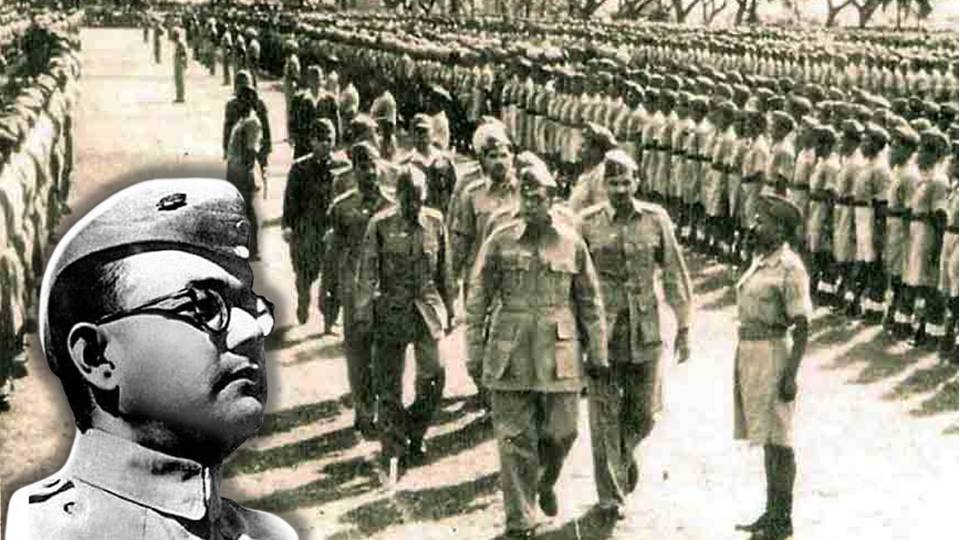India’s Independence from the British is often described in non-violence and Gandhian nature. His policy of non-violent Struggle-Truce-Struggle has been attributed as the key to independence. His Non-Cooperation (1920-22), Civil Disobedience (1930-33), and Quit India Movement of 1940-42 are claimed as the driving figure of the freedom struggle.
Rarely is any prominent space given to India’s revolutionary movements in the story of its freedom. Congress’s ecosystem completely ignored others’ involvement in the freedom movement. However, in an interview with the BBC in February 1955, Dr. Ambedkar himself concluded that Bose, not Gandhi, ended British rule in India.
Ahimsa nearly destroyed our civilization
Anuj Dhar, the author and former journalist, has published several books based on the conspiracy theories about the death of Subhas Chandra Bose. On August 14, 2022, sharing an audio clip of Ambedkar’s interview with the BBC in 1955 he said, “This is the ultimate truth: We became free because of Subhas Bose and INA. This is Babasaheb Ambedkar speaking. Whatever he says is backed by records, testimonies, etc. Ahimsa had a minimal role in making India free.”
This is the ultimate truth: We became free because of Subhas Bose and INA. This is Babasaheb Ambedkar speaking. Whatever he says is backed by records, testimonies, etc. Ahimsa had minimal role in making India free. RT to counter official propaganda🙏#IndependenceDay #Netaji125 pic.twitter.com/zY3s7UdM7A
— anuj.dhar@axl (@anujdhar) August 14, 2022
“The war for the change of the false narratives imposed on us can never be won unless we settle this core issue. It is a sin to say that India became free because of ahimsa… Indian leadership have lived on false hopes that promoting the cult of ahimsa will fetch them the Nobel Peace Prize. No, it won’t….Do not forget that ahimsa nearly destroyed our civilization. 75 years is nothing in our long history. Any promotion of the cult of ahimsa will have devastating consequences in the future”, he added.
Bose, NOT Gandhi got India its Independence
In the shared audio interview with BBC’s Francis Watson in February 1955, Dr. Ambedkar explained in detail why the British left India in 1947.
Ambedkar said, “I don’t know how suddenly Mr. Attlee agreed to give Indian Independence. That is a secret that he will disclose in his autobiography. None expected that he would do that. It seems to me that from the analysis I make about, two things led the Labour Party to take this decision.”
“One is the national army that was raised by Subhas Chandra Bose. The British had been ruling this country with the firm belief that whatever may happen in this country, whatever the politicians may do, they will never be able to change the loyalty of soldiers. That was one prop on which they were carrying on the administration. And that thing was completely dashed to pieces. They found that soldiers could be seduced to form a party or a battalion to blow off the British ” Ambedkar added.
Ambedkar concluded that if they were to rule India, the only basis they could rule was to maintain the British army. It was never possible to go back to the 1857 scenario when the revolt was suppressed by European forces.
Anuj Dhar’s research suggests that British MPs in February of 1946 concluded two things in meetings with Clement Attlee, the then British PM. One that they should arrange to get out and second that they should wait to be driven out. The loyalty of the Indian Army to the British was open to question.
The INA became national heroes
Ambedkar’s conclusion is true that Bose, not Gandhi, got India its Independence. When Indian National Army soldiers were repatriated back to India from Japan, they were put on trial for their ‘indisciplinary act’.
As the news of their trial spread throughout the country, a wave of widespread sympathy was generated in their favour.
The British hoped that by holding public trials in the Red Fort, public opinion would turn against the INA if the media reported their collaboration with Japan. But as the story of their fights unfold, they started to be represented as patriots and the English’s plan failed.
The trials of INA soldiers became the political issue of independence and a sympathetic wave in their favour started to generate. This was first seen in February 1946.
On 18th February 1946, an insurrection was launched by Indian naval ratings, soldiers, police personnel, and civilians against the British. The Indian Army has been the pillar of British rule in India. Their desertion to the British was the final nail in the coffin of British rule in India.
So, it was Bose and their INA which forced the British out of India, not Gandhi’s non-violence. We had been constantly fighting the independence movement with Non-Cooperation, Civil Disobedience, and the Quit India Movement. But, when the violent strike turned to the British, they knew their rule was over.
Support TFI:
Support us to strengthen the ‘Right’ ideology of cultural nationalism by purchasing the best quality garments from TFI-STORE.COM
